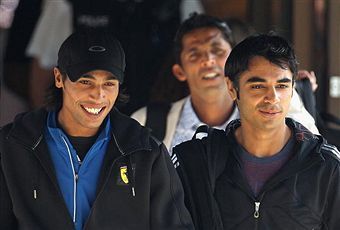Cricket, Lovely Cricket
Many thanks to Brother Bright for pointing me towards this completely charming British Council film about cricket. It’s narrated by Ralph Richardson and John Arlott and features the 1948 Lords Test – Bradman’s last appearance on the ground. The thing that’s striking is that while everything has changed, the essentials remain much the same. In that respect then, like monarchy, cricket is close to the epitome of a certain kind of English conservatism. For more terrific films from the 1940s and 50s, digitised and made accessible in part thanks to Martin’s New Deal of the Mind, pop over here.



